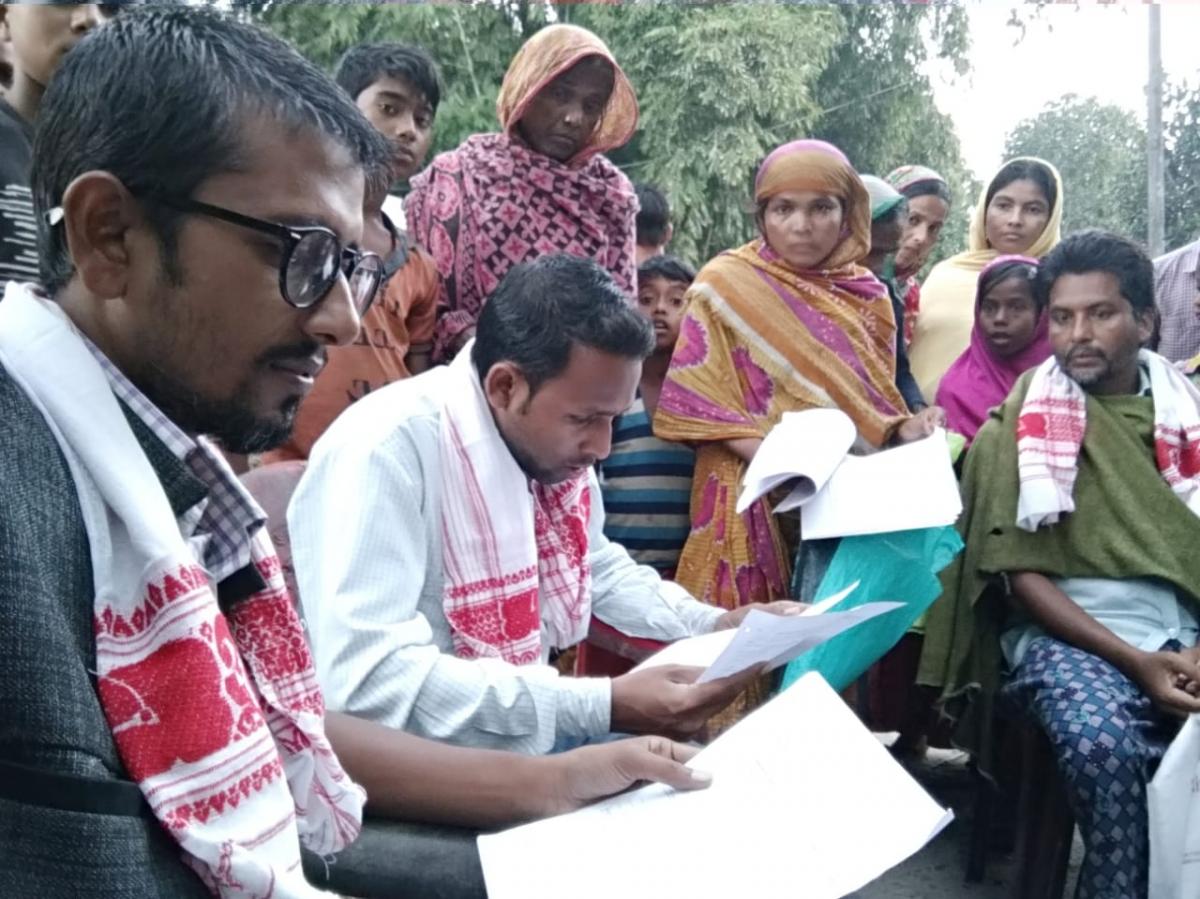Guwahati, 6th April: The tortuous NRC Claims and Objections process had let to a lot of confusion and anxiety among people of Assam. Those who had failed to make it into the final draft released on July 31, 2018 were required to fill Claim forms and supply documentary and other evidence. But those who made it weren’t safe either. The objections process allowed just about anyone to take objection to the inclusion of another person’s name on the list.

Image Courtesy: cjp.org.in
Today, the Objections process has entered a crucial phase when hearing will begin into the objections filed. More than two lakhs of objections have been filed. Those who have filed objections include not only individuals, but also organizations. However, what is truly terrifying is the prospect of entire family trees being affected. This is because many organisations have filed objections against list A documents. Therefore, if someone fails to establish the genuineness of list ‘A’ or legacy documents it will affect one family tree. This could affect as many as 40 people who belong to that family. Back of the envelop calculations therefore suggest, that the current two lakh objection applications, if found acceptable, could end up affecting as many as 80 lakh people.
Needless to say this is a source of fresh anxiety among people in Assam. The Assam chapter of Citizens for Justice and Peace (CJP) has been campaigning tirelessly all over the state to raise awareness about how a large number of objections have been filed against Indian citizens. It is also noteworthy that if an objection application is found to be baseless and therefore rejected, the person against whose name the objection was raised has the right to file a criminal defamation case against the objector. This provision is available under certain sections of the Citizenship Act, 1955 and as per modalities/SOP of NRC.
The NRC Rules may be viewed here:
The Standard Operating Procedure and Modalities related to the Claims and Objections process may be viewed here:
It is important to remember that names were included in the NRC draft after a painstaking process of document verification. The objection applications therefore deserve to undergo the same strict scrutiny, given that they question what can now be considered established fact. However, there are questions being raised about the NRC authority’s commitment to rigorous scrutiny of objection applications. The apprehensions arise from allegations of undue harassment to people whose inclusion has been challenged. They have been allegedly asked to come for hearings in places far from their homes.
Take the case of Sakina Khatun, a 70 year old widow from Chirang District of lower Assam, who has been asked to attend a hearing in Tinsukia District of Upper Assam, 900 kms away from her home. Interestingly, her objector, Banikanta Goyari, is also from Chirang District. As Sakina Khatun cannot travel alone and has no one else to help her, CJP community volunteer Amar Ali Ahmed is assisting her during the long travel that could also pose a risk to her health given that it could take up to five days!
There also instances where Bengali speaking Muslims from lower Assam are being labeled as Bangladeshi and assaulted mentally and physically by the chauvinist and communal forces whenever they journey to upper Assam. This has led to fear and many people are not ready to attend the objections hearings. Several organisations like CJP and AAMSU, and even the Supreme Court of India, have asked the NRC authority to hold hearings in a suitable place, so that, no one is harassed. Here is the SC order on proximity of location of hearings:
But in light of recent examples, the NRC authority appears to not be too concerned about these requests.
Therefore, CJP’s Assam team is making all efforts to assist these people, many from marginalised, economically backward and oppressed sections of society, so that they can attend hearings in far flung locations. What also adds to the challenge is sitting face to face with the objector, an experience that can be traumatising for the person whose citizenship is questioned. The Protocol for Reconciliation of Objection forms may be viewed here: